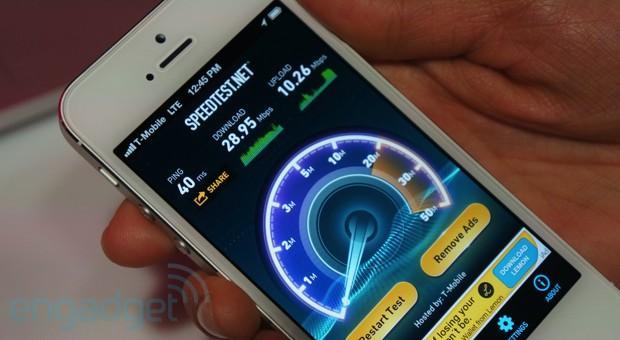Apple Modifying iPhone 5 For T-Mobile Bands, Existing Devices Won’t Have AWS Support
Apple has confirmed that it will sell a new version of the A1428 iPhone 5 model to support additional AWS bands for T-Mobile. Unfortunately, that means existing iPhone 5 users will not gain AWS support (on the 1700 band) via any kind of software update. Ultimately, that means that existing iPhone 5 devices won’t support the highest speeds on T-Mobile’s HSPA+ network, and will be phased out for the new A1428 model. Said another way, existing iPhone 5 owners using unlocked AT&T models can’t just apply a software update to have AWS support added. The result is you’ll end up having to buy a whole new phone if you demand HSPA+ 1700MHz support in your area.
As of April 12th, which happens to coincide with T-Mobile’s own iPhone 5 release date, Apple will sell the A1428 iPhone 5 with AWS support. The bottom line is that the “new” A1428 model will work on HSPA+ 42Mbps on T-Mobile’s AWS band, which the current iPhone doesn’t support, hence the network refarming. An Apple product manager at T-Mobile’s event says a minor software update will allow T-Mobile’s WCDMA/HSPA+ 1900 band to work with AT&T hardware. The current iPhone 5 model will never work with T-Mobile’s HSPA+ 42Mbps 1700MHz network, which is the exact reasoning behind T-Mobile’s network refarm.
All told, this shouldn’t be a huge issue once the network refarming is in your area, but considering the 1900MHz is now maxed out at HSPA+ 21Mbps, you won’t get HSPA+ 42 capabiilty. The new iPhone 5, releasing as of April 12th WILL be able to take advantage of the HSPA+ 42Mbps band. Both current and future iPhone 5 devices will work on T-Mobile’s 1700MHz LTE network.
To recap, current iPhone 5 works on HSPA+21Mbps on the 1900MHz band with the network refarm and 1700MHz LTE. The iPhone 5 releasing on April 12th will work on all the above plus HSPA+42 Mbps on the 1700MHz band.
All of that said and moving beyond the initial reaction, I never expected my current iPhone 5 to work on T-Mobile’s HSPA+ 42Mbps so this isn’t a huge surprise, nor disappointment.
More reading:

